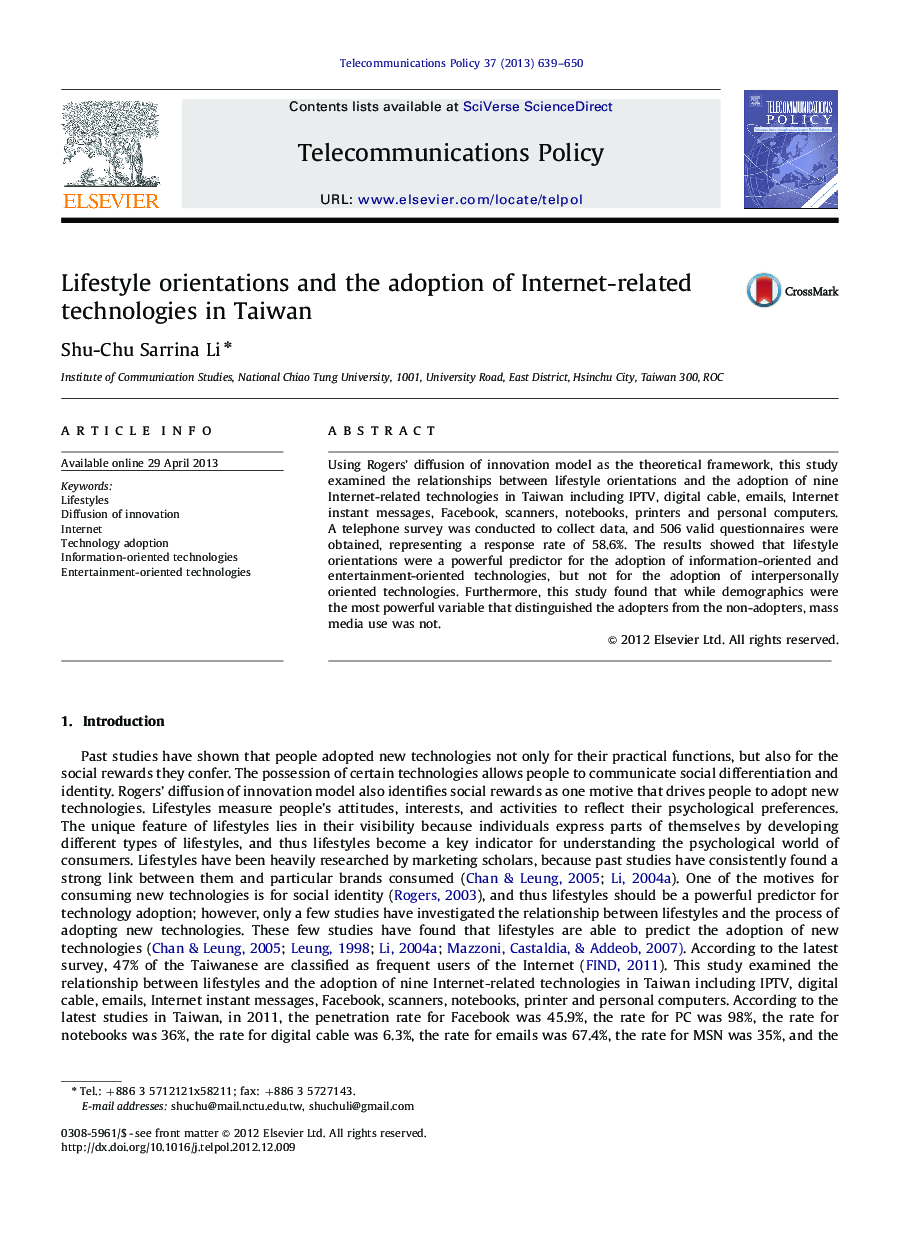| Article ID | Journal | Published Year | Pages | File Type |
|---|---|---|---|---|
| 557330 | Telecommunications Policy | 2013 | 12 Pages |
Using Rogers' diffusion of innovation model as the theoretical framework, this study examined the relationships between lifestyle orientations and the adoption of nine Internet-related technologies in Taiwan including IPTV, digital cable, emails, Internet instant messages, Facebook, scanners, notebooks, printers and personal computers. A telephone survey was conducted to collect data, and 506 valid questionnaires were obtained, representing a response rate of 58.6%. The results showed that lifestyle orientations were a powerful predictor for the adoption of information-oriented and entertainment-oriented technologies, but not for the adoption of interpersonally oriented technologies. Furthermore, this study found that while demographics were the most powerful variable that distinguished the adopters from the non-adopters, mass media use was not.
► Using Rogers' model to examine lifestyles and Internet-related technologies. ► A telephone survey with 506 valid questionnaires was conducted. ► Lifestyles predicted information technologies, but not for interpersonal technologies. ► Demographics were the most powerful variables, mass media use was not.
